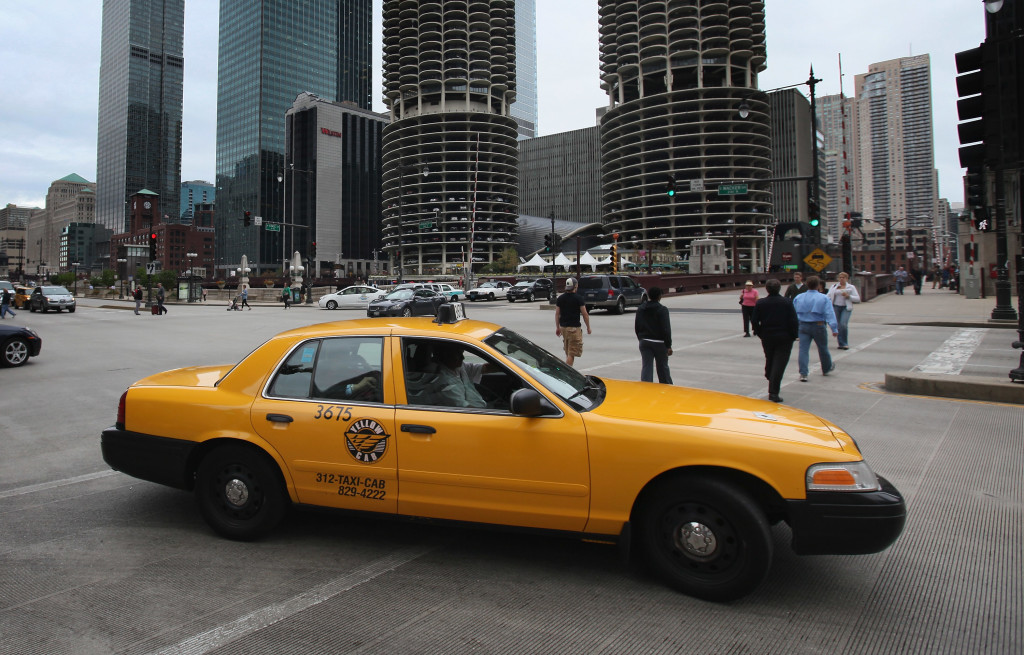Sixty-seven-year-old North Side resident Mustafiz Khan immigrated from Bangladesh to the Unites States in the hopes of establishing an orphanage. He hoped that it would be a family project as part of his greater American dream. A former tea garden manager, he always thought he would be doing big things in the U.S. Little did he know that he would wind up driving a taxi for more than a quarter of a century. He has tried to take joy in his profession, but he and his colleagues are severely impacted by the deadly coronavirus pandemic.
“I enjoy meeting all kinds of people and hearing their stories,” Mustafiz said. A friendly gentleman to all his passengers, he views every interaction as a chance to experience and learn from the diversity that the world has to offer.
All the same, the challenges of the job sometime outweigh the benefits. For example, Mustafiz said that as he has gotten older, he needs to use the restroom more frequently, which impacts how long he can work and how much money he can earn.
Mustafiz said that the work structure and regulations associated with the taxi industry also make it challenging make a living. “It’s not like I have a 9-to-5 and can just clock [in and] out to make ends meet,” he said. “There are no paid sick days or vacation days. If I work, there is minimal pay since there are multiple taxes. Restrictions from the city stifle us further."
“With the rise of Uber and Lyft, [cabbies’] income has been slashed,” Mustafiz added. What’s worse, he argued, is that there have been no significant provisions to help taxi drivers compete with ride-hail. He said that while many cabbies have asked their respective companies for help with this issue, many of these drivers feel their requests have fallen on deaf ears.
During the pandemic, the Center of Disease Control has urged the public to practice "social distancing," which includes maintaining at least a 6' distance from non-household members to avoid spreading the virus. That's basically impossible for taxi drivers, but staying home isn't an option for Mustafiz. “If I stop working, there is no money coming in,” he said. Many of his colleagues who have purchased cab medallions via mortgages, only to see their value plummet in the age of Uber and Lyft, have fallen into foreclosure. But he is trying hard to stay solvent during these difficult times.
Even as the coronavirus rapidly spreads across Chicagoland, Mustafiz has a fatalistic attitude about coming to work. “Health and sickness come from God and God alone," he said. (An observant Muslim, he has a grayish-white beard and wears traditional garb.) "If I’m destined to go, I will go.”
As such, when the crisis began, Mustafiz kept taking passengers whenever he could find them. But he eventually realized there was no work to be had. “Business has crashed. Streets are completely empty,” he said.
He recalled picking up one customer who started coughing profusely and kept apologizing to Mustafiz. The cabbie assured his passenger not to worry, saying that such encounters are now the “new normal” and something we need to get accustomed to. Mustafiz later said he was grateful simply to have a fare. (Please be sure to cover your mouth and nose whenever you cough and maintain 6' social distance whenever possible. - Ed)
Last Friday, Mustafiz along with many of his fellow workers, decided he simply could not go on any longer. He made the difficult decision to turn in his medallion to the city, which would absolve him of the monthly $650 fee. “That is just one of the [expenses of operating a cab]," he said. "That includes a monthly association fee [of] $150 along with gas, maintenance and repair that is involved. Don’t forget the annual fees too that Uber and Lyft [drivers do] not need to take care of." It made no sense to him to continue working since he would have been losing money, instead of earning it. But he still needs to pay for food and other expenses. “The bills won’t stop if the virus spreads,” he said distraughtly.
So what can be done to help the thousands of struggling cabbies across Chicagoland and our nation? Illinois' current "Stay at Home" order is an opportunity to rest and reflect on how to build a culture that properly values the labor of taxi drivers and all other service workers. American wealth inequality affects all aspects of our society, including the transportation sector. We must urge our policy makers to pass legislation to fairly compensate these so-called "unskilled workers." Doing so would not only improve their livelihoods but also benefit their families and thereby strengthen our communities. We don't need a pandemic to highlight these issues, but now more than ever we must care for those who are most vulnerable.
Tasmiha Khan has her MA in Social Impact. Follow her @CraftOurStory to learn more.
Here are some tips on preventing the spread of coronavirus, and advice for Chicagoans on what to do if you think you may have been exposed to the virus.





